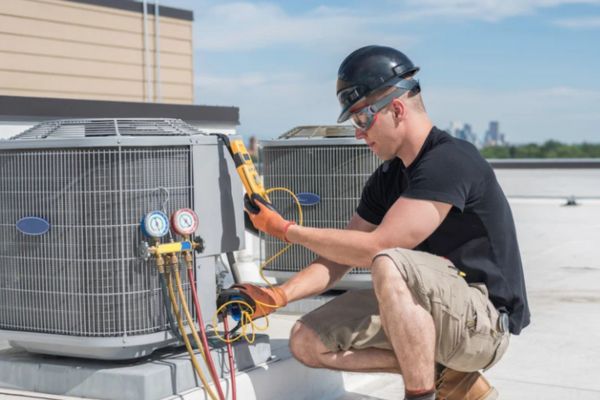Choosing the right contractor is essential to ensure your project is completed to the highest standard, on time, and within budget. Whether you’re tackling an HVAC repair, home renovation, or any major improvement, it’s important to screen potential contractors carefully. Let’s explore some steps you should follow to make an informed decision.

1. Questions to Ask When Screening Contractors by Phone
Your first conversation with a contractor can give you a good sense of their experience, professionalism, and whether they are the right fit for your project. Be prepared with key questions that will help you assess their qualifications and credibility.
- Business Background:
- How long have you been in business? – This gives insight into their experience and track record.
- How much experience do you have with [specific project, e.g., AC repair]? – Find out if their expertise aligns with your needs.
- Project Details:
- Will subcontractors be involved? – Understand who will be working on your project.
- Are you an authorized dealer for the brand you represent? – If you’re using specific products, this will ensure they are qualified to install and service them.
- Who handles the permits? – Verify if they’ll handle necessary permits or if this is your responsibility.
- Can you provide a project estimate? – Get an idea of costs upfront to see if it fits your budget.
- References and Proof:
- Can you provide references? – References help verify the contractor’s reliability and quality of work.
- Do you have insurance coverage (liability, worker’s compensation, etc.)? – Ensure the contractor has the proper insurance to protect you and the workers.
After the first call, make notes and prepare any follow-up questions for the next meeting to clarify details and compare contractors.
2. Continue to Research Your Potential Contractors
Don’t stop at the phone call. To make an informed decision, you need to dig deeper into the contractor’s background and reputation. A little online research can reveal a lot about their professionalism and quality of service.
- Online Presence:
- Visit their website: Is it updated and professional? – A well-maintained website can indicate how the contractor runs their business.
- Customer Feedback:
- Explore customer reviews: Are they mostly positive? – Check online reviews to see how previous clients feel about their work.
- Review Handling:
- How do they handle negative reviews? Were issues resolved? – Look for contractors who handle criticism professionally and work to resolve issues.
- Project History:
- Ask about recently completed projects and references. – Get details on similar projects they have completed recently to verify their capability.
It’s important to research every contractor you’re considering to understand their business and reputation comprehensively.
3. Be Aware of Warning Signs
Unfortunately, not all contractors are trustworthy. Being aware of common red flags can help you avoid falling victim to scams or hiring someone who isn’t suitable for the job. Trust your instincts and watch for these warning signs.
- Avoid Red Flags:
- Contractors who request the total project cost upfront – Reputable contractors typically ask for a reasonable deposit, not the entire payment at the start.
- Pressure to sign a contract immediately – Don’t rush into a decision. Take your time to compare contractors and consider all options.
- Any outliers in estimates – Quotes should be relatively consistent unless significant differences in project scope or equipment exist.
- Verification Process:
- Confirm physical business address – A legitimate contractor should have a verifiable address.
- Validate licensing, credentials, and professional affiliations – Ensure they have the proper licenses and certifications for the work they’ll be performing.
- Check registration with the Better Business Bureau (BBB). – This can offer an additional layer of assurance about their reliability.
Trust your gut—if something feels off about a contractor, it’s worth investigating further or choosing another professional.
Choosing the right contractor for your project takes time and research. By asking the right questions, doing thorough research, and being aware of potential warning signs, you’ll be in a much better position to find a contractor to deliver quality work. Keep the lines of communication open, and don’t hesitate to compare multiple contractors to ensure the best fit for your needs.


